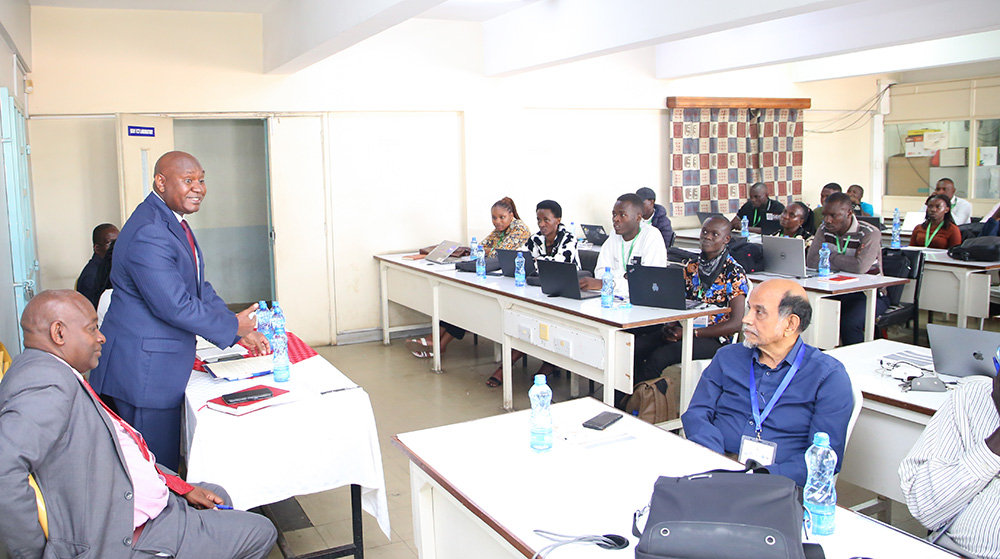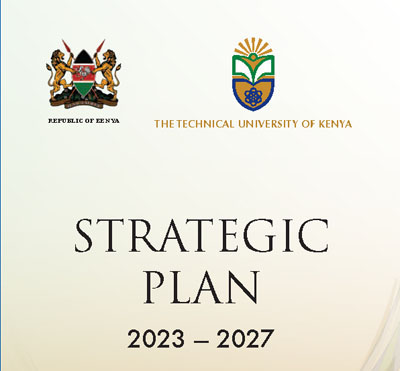Researchers from Global South are taking bold steps in building capacities and knowledge in astronomy and robotic telescope technology amongst the future generation of scientists. To foster a leadership role in this field, TU-K in partnership with the Sharing the Sky Programme, is hosting a 3-day workshop themed ‘Skill Development using a global telescope network for uplifting the East African astronomical research community’.
The workshop seeks to provide participants/researchers with skills to carry out astronomical observations using robotic telescopes provided by the Las Cumbres Observatory (LCO) global robotic telescope network. The network, is a world leading facility that provides scientists/researchers with a worldwide network of robotic telescopes, that are connected and centrally controlled to act as a single scientific instrument. This will equip scientists with unique capabilities to make continuous astronomical observations on varying time scales.
Speaking during the opening ceremony on Monday, the Vice-Chancellor, Prof. Benedict Mutua, underscored the importance of expanding knowledge and skills in astronomy amongst researchers in the global south.
“In today's rapidly evolving world, astronomy is no longer confined to exclusive laboratories in the Global North,” said the Vice-Chancellor.
“The Global Robotic Telescope Network offers a coordinated system of automated telescopes in different parts of the world, and the Global South can tap into these resources and make a difference.”
“Workshops like this serve as a learning platform. And it's time for us in East Africa or Africa to take advantage for the benefit of the continent. I think we are on track. And during this particular workshop, we're going to share these ideas that can make us navigate happily to the next level.”
Prof. Mutua stressed the University’s commitment to building research capacities. He also urged students and members of staff to also embrace emerging technologies as a key tool in advancing research in the continent.
“I am glad that the objective of this particular workshop, among many others, is to train students and of course staff from visible areas across East Africa and to some extent Africa. And as a technical university, we are committed to supporting capacity development in science and technology as well as emerging technologies.”
“Technology is changing very fast. As we share the space in this field that is new to the southern part of the world, we need to embrace the technologies that are there. That's the way to go. We all see that if we don't change, the change will come in a negative way.,” Prof Mutua stressed.
In addition, the Vice-Chancellor urged students and staff to be active knowledge seekers and researchers.
“I want to ask all of us, especially our students, to become more and more students of knowledge. Every day, let's ask questions. Why? Why did it happen? Because without questions, we cannot move forward,” said Prof Mutua.
“I believe that where Africa's scientists and scholars are active, we need to contribute to the global research ecosystem. And to whichever field we are in, can we contribute to the global research ecosystem, because this is one of our focus area in this University,” underscored Prof. Mutua.
The workshop will cover key topics such as working with robotic telescopes, observational and statistical techniques, campaign design and management, as well as provide participants with skills in academic writing, presentation skills, and preparing successful competitive research facility proposals and grant applications.
It is open to undergraduate students in astronomy/astrophysics or related disciplines, postgraduate students, early-career researchers, as well as senior astronomers, who are based in Kenya, Uganda, Tanzania, or Rwanda.
“At the end of the workshop, we want to have a pool of researchers, with expertise on how to use remote telescope to process data and use it without travelling abroad,” said Prof. Paul Baki, Kenya National Coordinator under the Sharing the Sky Programme.
The University is a key player in building researchers capacities in astronomy through different training programmes. To this regard, the institution recently acquired and installed a Transient Array Radio Telescope (TART) that is calibrated to receive radio signals from space objects like satellites, stars, planets, galaxies among other interesting celestial bodies at ~1.575 GHz. This was a key milestone in building space research.
Sharing the Sky Program is funded by the UK’s Science and Technology Facilities Council (STFC) and managed by the University of St Andrews (Scotland, UK) with Dr Martin Dominik as the lead coordinator. Other national coordinators for Kenya, Uganda, Tanzania, or Rwanda respectively include; Prof Paul Baki (Technical University of Kenya), Dr Edward Jurua (Mbarara University of Science and Technology), Dr Noorali Jiwaji (Open University of Tanzania) and Prof Pheneas Nkundabakura (University of Rwanda).


